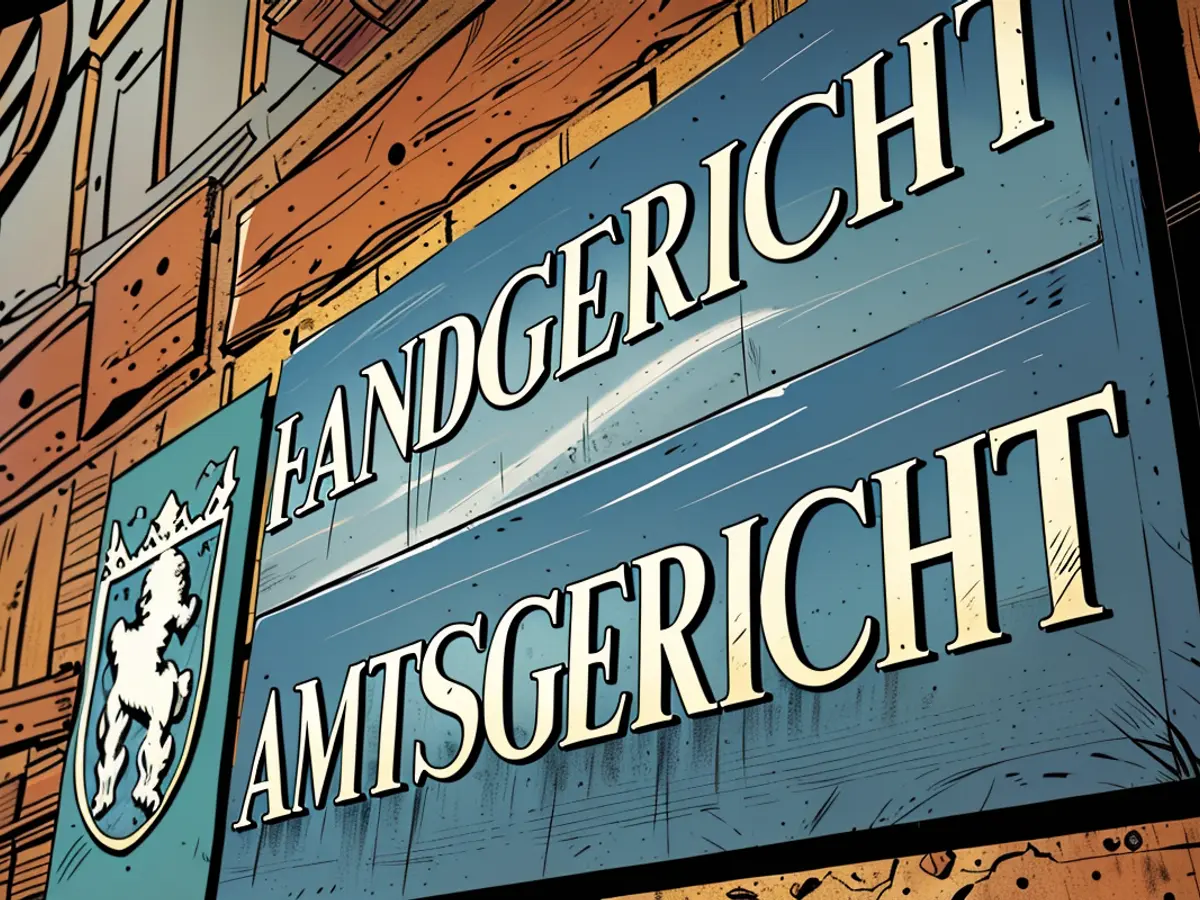Justice - No trial against alleged concentration camp guard
The case of a suspected former guard at the Sachsenhausen Concentration Camp should not be heard in court. The 99-year-old man is permanently incapable of participating in proceedings due to health reasons, therefore, the opening of the main trial was legally rejected, the Landgericht Hanau announced on a Wednesday.
The Youth Chamber of the Court had rejected the admissibility of the indictment with a decision from May 6 of this year. The decision is not yet legally binding (Az.: 2 Ks 501 Js 33635/22).
The Public Prosecutor's Office Gießen had filed an indictment against the man last year, who is said to have served as a guard in the KZ Sachsenhausen as a young man. Since he is German and the place of jurisdiction applies in juvenile criminal law, the Youth Chamber of the Landgericht Hanau had to decide on the admissibility of the indictment.
The man from the Main-Kinzig-District was charged with having provided assistance to murder in more than 3300 cases from July 1943 to February 1945. As a member of the SS-Wachmannschaften, the German national is said to have supported the cruel and treacherous murder of thousands of prisoners.
As a member of an SS-Wachbattalion, the man was reportedly involved in the supervision of prisoners housed there, as well as in the transport of arriving prisoners from the train station to the main camp, and the supervision of prisoner transports.
During this period, at least 3318 prisoners are said to have died in the camp due to the living conditions and from shootings and the use of poison gas.
A psychiatric expert opinion, which was obtained in October of the previous year, assumed a limited capacity for legal proceedings of the man. At the beginning of February of this year, another expert opinion came to the conclusion that the physical and psychological condition of the man had deteriorated and that there was no prospect of improvement. "The court followed the expert's findings in full and therefore rejected the indictment for legal reasons," it was stated.
In the Sachsenhausen Concentration Camp, approximately 204,000 people were interned by the Nazis between 1936 and 1945, approximately 10,000 of whom died or were killed due to hunger, diseases, forced labor, and mistreatment, or were victims of SS extermination actions. Thousands more prisoners died on death marches from the evacuation of the camp at the end of April 1945.
- Despite the public prosecutor's office in Gießen indicting the man for his role as a guard in the Sachsenhausen KZ during National Socialism, the court rejected the admissibility of the case due to his permanent incapability to participate in the proceedings.
- The man, originally from Hesse, is accused of providing assistance to murder in over 3300 cases at Sachsenhausen concentration camp between 1943 and 1945, supporting the cruel treatment and murder of thousands of prisoners.
- The case of the former guard at the Sachsenhausen Concentration Camp has sparked controversy, as it highlights the complexities of bringing criminal charges against perpetrators of historical crimes, especially in light of their advanced age and declining health.
- The history of the Sachsenhausen concentration camp, established in 1936 and used by the Nazis until 1945, is a stark reminder of the atrocities committed during National Socialism and the need for justice and accountability.
- The rejection of the man's trial by the Landgericht Hanau public prosecutor's office has provoked debate in the field of historical justice, with critics arguing that allowing such individuals to avoid facing the consequences of their actions sets a dangerous precedent and undermines the cause of justice in addressing historical crimes.








